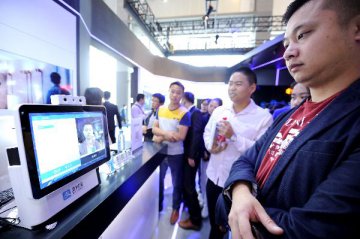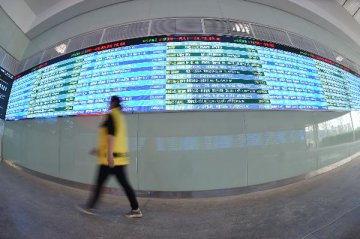
China’s foreign exchange authorities opened a new channel for banks to verify the authenticity of trading background of enterprises and set up a new defense line to prevent payment for false trading. The Economic Information Daily learnt in an interview that the State Administration of Foreign Exchange (SAFE) has given commercial banks across the country access to electronic customs declaration information so that they can review the authenticity of foreign exchange payment for trade in goods. An insider said that the move has remarkably strengthened banks’ control in the review of authenticity of declaration information for imports. It also gives warning to enterprises which try to purchase and pay forex repeatedly with only one application and conduct transactions with false trading background.
After the SAFE released the Circular on Facilitating Trade Documents Reviews by Banks, banks began to review enterprise information on the "Customs Declaration Information Verification" module, and intercepted some suspicious transactions. Jiang Xu, deputy general manager of the Trading and Financial Department of the Bank of China (BOC), said that transactions applying for review of foreign exchange payment for trade in goods account for about 46 percent of the total transactions in the period, and prevented one company from paying 94,000 US dollars via repeated use of declaration information.
The module helps banks solve a problem in the verification of trading information via information data sharing. In recently years, as customs departments have advanced paperless reform in customs clearance works, customs declaration and paper documents have been replaced by electronic customs declaration. The efficiency for customs clearance has greatly improved. Yet as banks have no way to verify the authenticity of customs declaration printed by enterprises, some enterprises cheated or illegally transferred money by falsifying or altering declaration information for imports.
Dong Zhen, general manager assistant of the international business department of CITIC Bank, also said that previously banks could only verify the authenticity of documents in surface so that they cannot prevent enterprises from using trading documents for false, repeatedly financing.
The reporter learnt that in the past, due to lack of channels to verify the authenticity of customs information, it is difficult for banks to distinguish forged documents. And the module launched by the SAFE this time provides a new channel for verifying the authenticity of customs information. On the module, banks can check whether a customs declaration exists, or whether the customs declaration is used several times after entering key words. If enterprises are found not to provide declaration information in accordance with regulations, repeated use of declaration information or use of falsified declaration information, banks should make notes of these enterprises, and such notes shall be made known to other banks across the country through the system.
“The move will prevent the risk that some customers may repeatedly pay foreign exchange in several banks. Meanwhile, it encourages enterprise to operate in accordance with law. It also gives warning to enterprises which try to purchase and pay forex repeatedly with only one application and conduct transactions with false trading background. It also plays an active role in regulating market participants’ trading behavior, purifying the trading environment for forex business and promoting a health development of the market,” said Jiang Xu.
An industry insider pointed out that the circular also facilitates commercial banks to review and strengthens banks’ control in the verification of authenticity of trading background in foreign trade payment business. In addition, it would not increase enterprises’ burden.
Huang Wei, deputy general manager of the Trading and Financial Department of China Construction Bank, said that the "Customs Declaration Information Verification" module is offered for banks to use, but does not require banks to verify each transaction of foreign exchange payment for trade in goods. In practice, banks could make a dynamic list which can be exempted from verification or required to verification in the principles of "know your customer, understand your business and due diligence".
An official from the SAFE recently noted in an article that the SAFE will continue to promote the reform of key areas in an orderly manner, communicate with the market communication to further enhance trade and investment facilitation; strengthen monitoring and warning of cross-border capital flow, support banks to improve self-discipline mechanism and strictly perform the requirements and responsibilities for authenticity and compliance and continue to crack down on foreign exchange violations. It will strengthen law enforcement in foreign exchange market under existing policy framework without affecting the normal use of foreign exchange. The SAFE has always required commercial banks will verify the authenticity and compliance of cross-border transactions and receipts in accordance with international practice. Enterprises which are conducting legitimate payment of foreign exchange will not be affected.























Latest comments